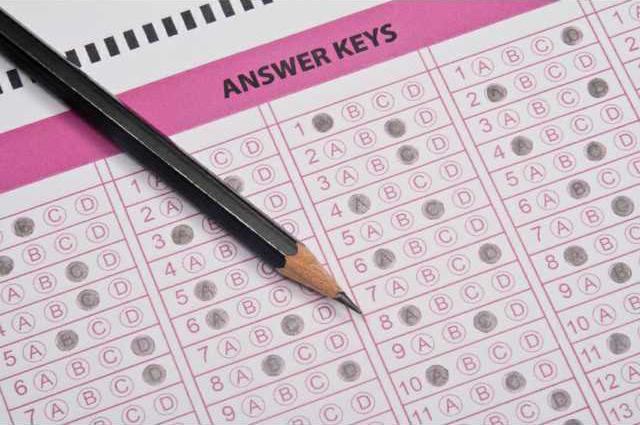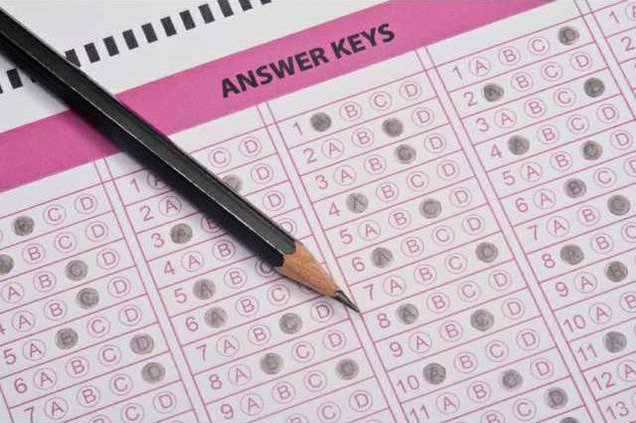If your student doesnt excel at high-stakes testing, like many students, getting into college might be getting easier.
George Washington University announced Monday it will no longer require undergraduate applicants to provide a SAT or ACT score with their application, Elliot Hannon reported for Slate.
While 1.7 million students in the class of 2014 took the SAT and 1.8 million took the ACT, a growing number of colleges and universities are not requiring these tests anymore.
The National Center for Fair and Open Testing reports that there are 800 schools that don't require the SAT or ACT or "de-emphasize the use of standardized tests." Of these schools, 180 of them are private colleges and universities, like American University, Wesleyan University and Wake Forest University, Hannon reported.
Still other schools have de-emphasized these test by accepting Advanced Placement or International Baccalaureate tests or waiving the requirement for those with high enough GPAs, Nick Anderson reported for The Washington Post.
GW officials said in a statement that they feel like these high-stakes admissions tests arent the best way to judge an applicant's possible success.
While that view is sharply debated, many say it is possible to assemble a strong class without forcing applicants to submit a score from tests that critics say are culturally biased and often fail to reflect academic potential, Anderson explained.
Students will often take these admissions tests multiple times, hire special tutors and take practice tests to prepare, which puts some students that cant afford to do these things at a disadvantage.
We want outstanding students from all over the world and from all different backgrounds regardless of their standardized scores to recognize GW as a place where they can thrive, Dean of Admissions Karen Stroud Felton told The Washington Post.
Standardized and admissions tests have become a point of contention for educators, parents and students across the country. Ron Maggiano, a well-liked teacher from Virginia, told Valerie Strauss with The Washington Post that he left teaching because of these tests.
He said the tests dont prepare students and dont measure what they have learned.
After more than a dozen years of the No Child Left Behind and Race to the Top eras in which high-stakes tests have dominated, students are no more ready to do well in college than they were before and many are less so, Maggiano wrote.
George Washington University announced Monday it will no longer require undergraduate applicants to provide a SAT or ACT score with their application, Elliot Hannon reported for Slate.
While 1.7 million students in the class of 2014 took the SAT and 1.8 million took the ACT, a growing number of colleges and universities are not requiring these tests anymore.
The National Center for Fair and Open Testing reports that there are 800 schools that don't require the SAT or ACT or "de-emphasize the use of standardized tests." Of these schools, 180 of them are private colleges and universities, like American University, Wesleyan University and Wake Forest University, Hannon reported.
Still other schools have de-emphasized these test by accepting Advanced Placement or International Baccalaureate tests or waiving the requirement for those with high enough GPAs, Nick Anderson reported for The Washington Post.
GW officials said in a statement that they feel like these high-stakes admissions tests arent the best way to judge an applicant's possible success.
While that view is sharply debated, many say it is possible to assemble a strong class without forcing applicants to submit a score from tests that critics say are culturally biased and often fail to reflect academic potential, Anderson explained.
Students will often take these admissions tests multiple times, hire special tutors and take practice tests to prepare, which puts some students that cant afford to do these things at a disadvantage.
We want outstanding students from all over the world and from all different backgrounds regardless of their standardized scores to recognize GW as a place where they can thrive, Dean of Admissions Karen Stroud Felton told The Washington Post.
Standardized and admissions tests have become a point of contention for educators, parents and students across the country. Ron Maggiano, a well-liked teacher from Virginia, told Valerie Strauss with The Washington Post that he left teaching because of these tests.
He said the tests dont prepare students and dont measure what they have learned.
After more than a dozen years of the No Child Left Behind and Race to the Top eras in which high-stakes tests have dominated, students are no more ready to do well in college than they were before and many are less so, Maggiano wrote.





